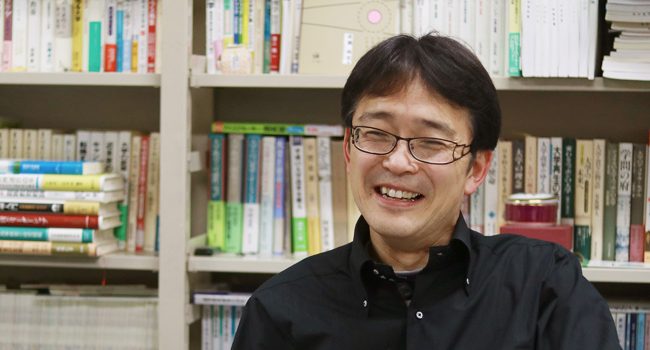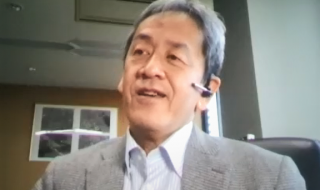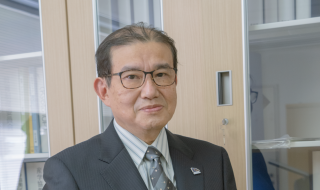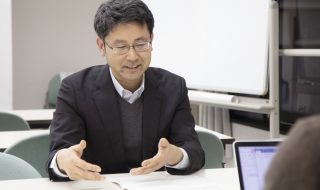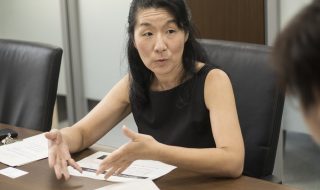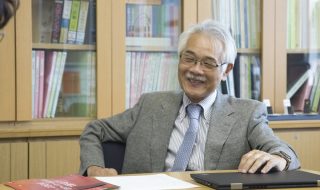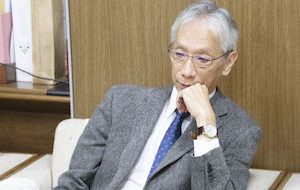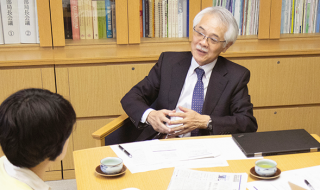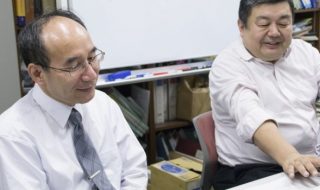Design and Benefits of the First-Year Exploratory Specialized Course “Basic Introduction to Educational Studies” at the Faculty of Education
What characterizes the subject “Basic Introduction to Educational Studies ”?
Basic Introduction to Educational Studies is one of the specialized courses assigned to first-year students, and it is the only course through which they encounter the specialized areas of pedagogy and psychology. It is set up to introduce and engender interest in these areas for the students. It is a compulsory course for all students enrolled in the Faculty of Education. Therefore, it is regarded as an important course at the Faculty of Education.
The course has undergone a radical renewal since academic year 2016. What are the reasons for the renewal?
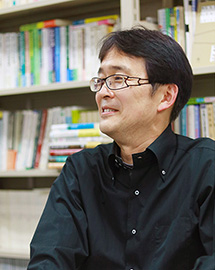
Previously, this course had been given mostly as classroom lectures. However, exploratory classes were increasingly being offered at high schools and other institutions. Kyoto University began its Unique Entrance Examination as part of its entrance exam reforms. These factors were present behind the renewal. I thought it necessary to give active learning opportunities and maintain the motivation of first-year students who came to the university to enthusiastically study pedagogy and psychology. However, it would be time-consuming to modify the curriculum. So, as a realistic measure, it was agreed to renew the existing Basic Introduction to Educational Studies.
What factors were of particular importance in the renewal?
Most importantly, students should be allowed to learn actively. In addition, another aim was to help students experience difficulties and dissatisfaction as a process of going through the course. Research is not easy. With this knowledge, students could strive to make relevant improvements, feel the depth of research, and experience frustrations and failures arising during the research process. I thought these would be helpful for them.
What specific methods did you use to run the course?
As a general framework, I thought that students should play active roles. Initially, students received explanations about literature searches, academic integrity, and other necessary considerations. Then, they administered the class according to their will. More specifically, 65 students formed 13 groups. They selected themes and worked on their research themes in a proactive manner. Six TAs and three teachers had discussions and coordinated each class session.
How did you feel about the implementation of the course?
The greatest impression was it was a very interesting course to teach. The students were extremely enthusiastic. In addition, I learned about techniques other teachers used when running the class. Their ways of speaking, giving explanations, and drawing students’ attention were informative. Working together, the teachers came up with one thought-provoking idea after another.
What goals did you envision students attaining in the course?
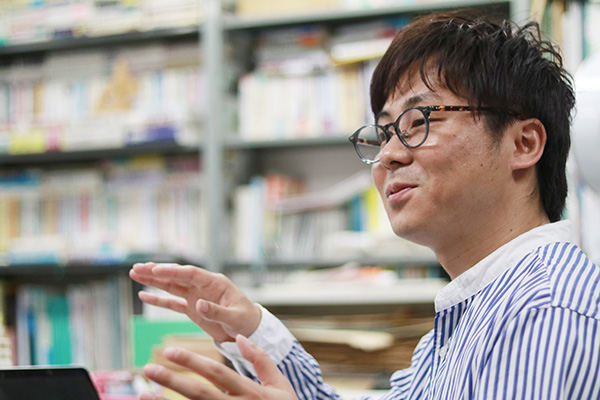
I wanted students to understand, through the course, that research is tricky and difficult. Indeed, groups presented their research results and received feedback from others. Through this process, they became aware of how difficult it is to generalize research and the inadequacy of their literature search. They also had experiences common to all researchers, such as finding irrelevant answers to the initially posed question. They had these experiences as first-year students, which will become useful for them in the future.
What was your intent in guiding students to form working groups for their research?
First, I wanted them to mutually have stimulating influences on each other. Whatever careers they choose, it is important for them to develop, before starting to work, the attitude of listening to what others have to say. I believe that the experiences they had in the course are informative in whatever careers they take.
What new issues did you face after the renewal?
I think the course was somewhat burdensome for the students. This was because of the richness of the content. The students oftentimes could not finish their tasks in time and carried out after class hours. Additionally, the teaching staff should consider to what extent they should intervene in students’ theme selection and research methods.
It is difficult for the teaching staff to know the ideal extent in which they should take part in the students’ activities.
The teaching staff may have ideas about good ways of doing things. That said, it is difficult to tell whether giving their ideas to the students is productive or not. In this regard, I think that the TAs played a great role last academic year.
What did you expect from TAs?
They were close to the students in age. I thought that the students would ask the TAs about things they were reluctant to ask the teacher. With vivid knowledge of their failures as undergraduates, the TAs could give precise advice to the students.
Some may say that without relevant knowledge, research would be impossible. What was your intent in designing the course for students before they gained knowledge?
It is very simple. When students experience research despite the lack of adequate knowledge, they become aware of the need for knowledge in doing research. I believe this very experience is meaningful for them. In this sense, I regard the course as an upfront investment in their four-year learning at the university.
What is your plan for future Basic Introduction to Educational Studies?

I wish that every teacher would teach this course, because the teacher gains benefit from seeing the students’ growth process beginning in the first year. The teacher can realize how students change by receiving stimulating influences, and the teacher learns that students develop when the teacher optimally takes part in what students do. For teachers, the process of creating a class through collaboration, rather than sharing responsibility with their colleagues, is stimulating. Students also pointed out many issues. At the same time, they had a positive assessment of the overall classes. From this, the teaching staff gets good feedback. Meanwhile, since the size of the Faculty of Education is not large, teachers often perform two or more tasks simultaneously. For them to properly take these responsibilities on a continual basis, they need more leeway. For this reason, I sense a need for more personnel.
Why did you aim to take the new approach under the tight circumstances?
One task of researchers, including me, is to pursue research for society. That said, research will never be complete in one generation. I think it’s important to train the next generation to provide society with improved results built on the earlier studies of their predecessors.
What do you think about when organizing courses like Basic Introduction to Educational Studies?
The teacher should not assume beforehand that students are incapable. It is important to let them do whatever they want. I place trust in them as a fundamental prerequisite.
How is it possible to extend your approach into the future?
The primary motivation of teachers may be to continue their research. For this reason, it is significant that a teacher organizes a course that draws on his or her specialization for first-year students who are enthusiastically interested in specialized courses. The administration of the class should align with the teacher’s efforts to pass down his or her research to the students. By enabling this, the teacher can transfer or facilitate his or her research, and the students gain a detailed knowledge of their teacher’s research. In this way, I think, both will mutually exert positive influences. I hope that, in doing this, it will be possible to achieve faculty development, while advancing both research and education.
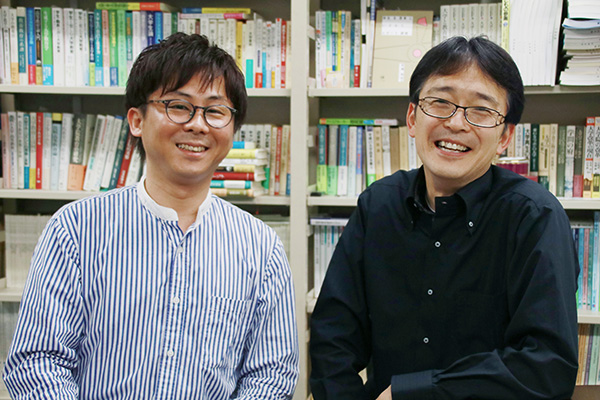
(Recording day: June 2, 2017)
List of Interviews


